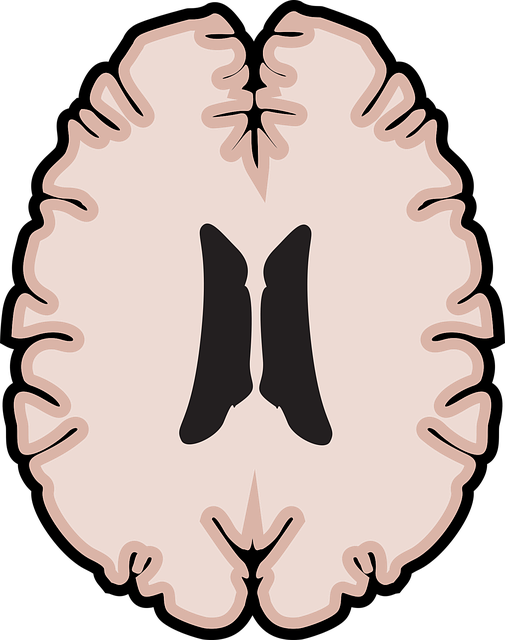Arvada Child Abuse Therapy focuses on early intervention to teach children emotion regulation strategies for mental well-being in a stressful world. They emphasize culturally sensitive practices, risk management, and identifying triggers to manage emotions effectively. Mindfulness meditation, coping skills, and social training empower kids to handle challenges, build resilience, and develop emotional intelligence. These techniques promote personal growth, reduce stress, and foster healthy relationships, particularly for those who have experienced abuse.
Emotion regulation techniques are invaluable tools for children, especially those who have experienced arvada child abuse. This article explores the profound impact of teaching kids how to manage their emotions effectively. We delve into understanding emotional regulation and its benefits, identifying triggers, and providing practical coping strategies. Additionally, we discuss mindfulness practices and building resilience for long-term emotional well-being. By equipping children with these skills, parents and caregivers can foster healthier, happier, and more resilient individuals.
- Understanding Emotion Regulation and Its Impact on Children
- Identifying Triggers: Recognizing Patterns in Behavioral Responses
- Teaching Coping Strategies: Empowering Kids with Tools for Self-Soothing
- Mindfulness and Emotional Awareness: A Path to Inner Peace
- Building Resilience: Long-Term Techniques for Navigating Life's Challenges
Understanding Emotion Regulation and Its Impact on Children

Emotion regulation is a vital skill for children to develop as it plays a crucial role in their overall well-being and mental health. In today’s world, where stress and emotional challenges are prevalent, teaching kids effective emotion regulation techniques can be transformative. At Arvada Child Abuse Therapy, we recognize that early intervention is key to fostering resilience and healthy coping mechanisms. By understanding and managing emotions, children can enhance their ability to navigate life’s difficulties and build strong relationships.
This process involves recognizing and identifying feelings, learning to express them healthily, and developing strategies to calm oneself during intense emotional states. It is particularly important for those who have experienced trauma or are at risk of mental health issues. Cultural sensitivity in mental healthcare practice is essential when teaching emotion regulation, ensuring that techniques are tailored to each child’s unique background and needs. Moreover, risk management planning for mental health professionals can help create a supportive environment where children feel safe to explore and express their emotions, ultimately reducing the chances of adverse outcomes and promoting positive development.
Identifying Triggers: Recognizing Patterns in Behavioral Responses

Identifying triggers is a crucial step in emotion regulation techniques teaching. By recognizing patterns in behavioral responses, individuals can gain insight into what sets off their emotions and develop strategies to manage them effectively. This process often involves keeping a journal to track specific situations, people, or activities that lead to heightened emotional states. In the context of Arvada Child Abuse Therapy, understanding these triggers is essential for healing and growth.
Mindfulness Meditation and Burnout Prevention Strategies for Healthcare Providers can be powerful tools in this journey. Cultivating mindfulness helps individuals become more aware of their thoughts and feelings without judgment. This awareness allows them to notice early signs of emotional distress and take proactive measures. Additionally, incorporating Cultural Sensitivity in Mental Healthcare Practice ensures that these techniques are tailored to each individual’s unique background, enhancing their effectiveness and fostering a supportive therapeutic environment.
Teaching Coping Strategies: Empowering Kids with Tools for Self-Soothing

Teaching children coping strategies is a powerful way to empower them with tools for self-soothing and emotion regulation. This process involves equipping kids with techniques to manage their feelings effectively, which can significantly benefit their overall well-being, especially in instances of trauma or challenging situations, such as those experienced at Arvada Child Abuse Therapy centers. By implementing these strategies, healthcare providers can enhance their cultural competency training, fostering a more supportive environment for diverse populations.
Coping skills education often includes teaching mindfulness practices, deep breathing exercises, and visualization techniques. These simple yet effective methods enable children to gain a sense of control over their emotions and reactions. Additionally, social skills training plays a crucial role in helping kids express their feelings appropriately and build healthy relationships. Through these comprehensive approaches, children not only find relief from anxiety but also develop essential life skills that promote resilience and emotional intelligence.
Mindfulness and Emotional Awareness: A Path to Inner Peace

In the heart of Arvada Child Abuse Therapy lies a powerful tool for personal growth: mindfulness and emotional awareness. By cultivating an understanding of one’s inner experiences, individuals can embark on a journey to achieve inner peace and better navigate life’s challenges. Mindfulness encourages people to focus on the present moment, observing their thoughts and emotions without judgment. This practice allows for increased self-awareness, enabling individuals to recognize and accept their feelings as they are, thereby reducing the intensity of stressful situations.
Emotional intelligence, a key component of this process, involves recognizing and managing one’s own emotions and understanding the emotions of others. Self-awareness exercises play a crucial role in developing emotional intelligence by helping individuals identify their emotional triggers and patterns. Through regular practice, mindfulness and emotional awareness can transform into effective stress management strategies, fostering resilience and promoting overall well-being for folks navigating complex life experiences, including those who have faced child abuse.
Building Resilience: Long-Term Techniques for Navigating Life's Challenges

Building resilience is a crucial aspect of long-term emotional well-being promotion techniques, especially for individuals who have experienced challenging circumstances like Arvada Child Abuse Therapy. By learning effective emotion regulation strategies, individuals can navigate life’s challenges with greater ease and adaptiveness. This process involves cultivating mental toughness and the ability to bounce back from setbacks, which are essential components of burnout prevention strategies for healthcare providers as well.
Mindfulness meditation, for instance, has been shown to be a powerful tool in enhancing emotional resilience. It teaches individuals to observe their thoughts and emotions without judgment, fostering a greater sense of self-awareness and emotional regulation. This practice can help break harmful cycles of stress and anxiety, promoting not only personal growth but also effective coping mechanisms for dealing with life’s inevitable ups and downs.
Emotion regulation techniques are invaluable tools for children, especially those who have experienced challenges like Arvada child abuse therapy. By understanding and managing their emotions effectively, kids can develop resilience, enhance their overall well-being, and improve their relationships. The strategies outlined in this article—from identifying triggers to practicing mindfulness—equip children with the skills to navigate life’s ups and downs, fostering a sense of control and empowerment. These teachings are crucial steps towards building a healthier, happier future for children and their families.











